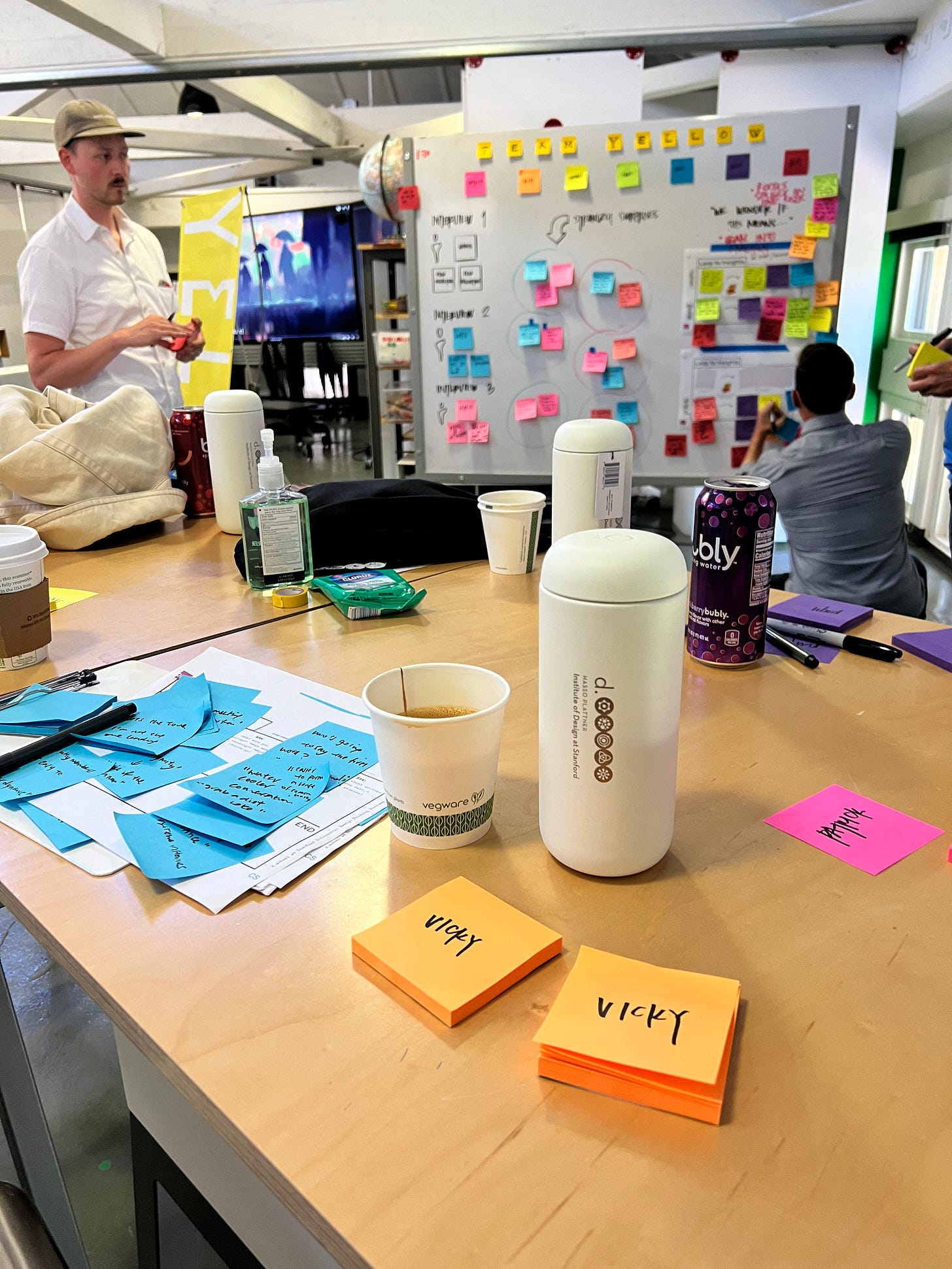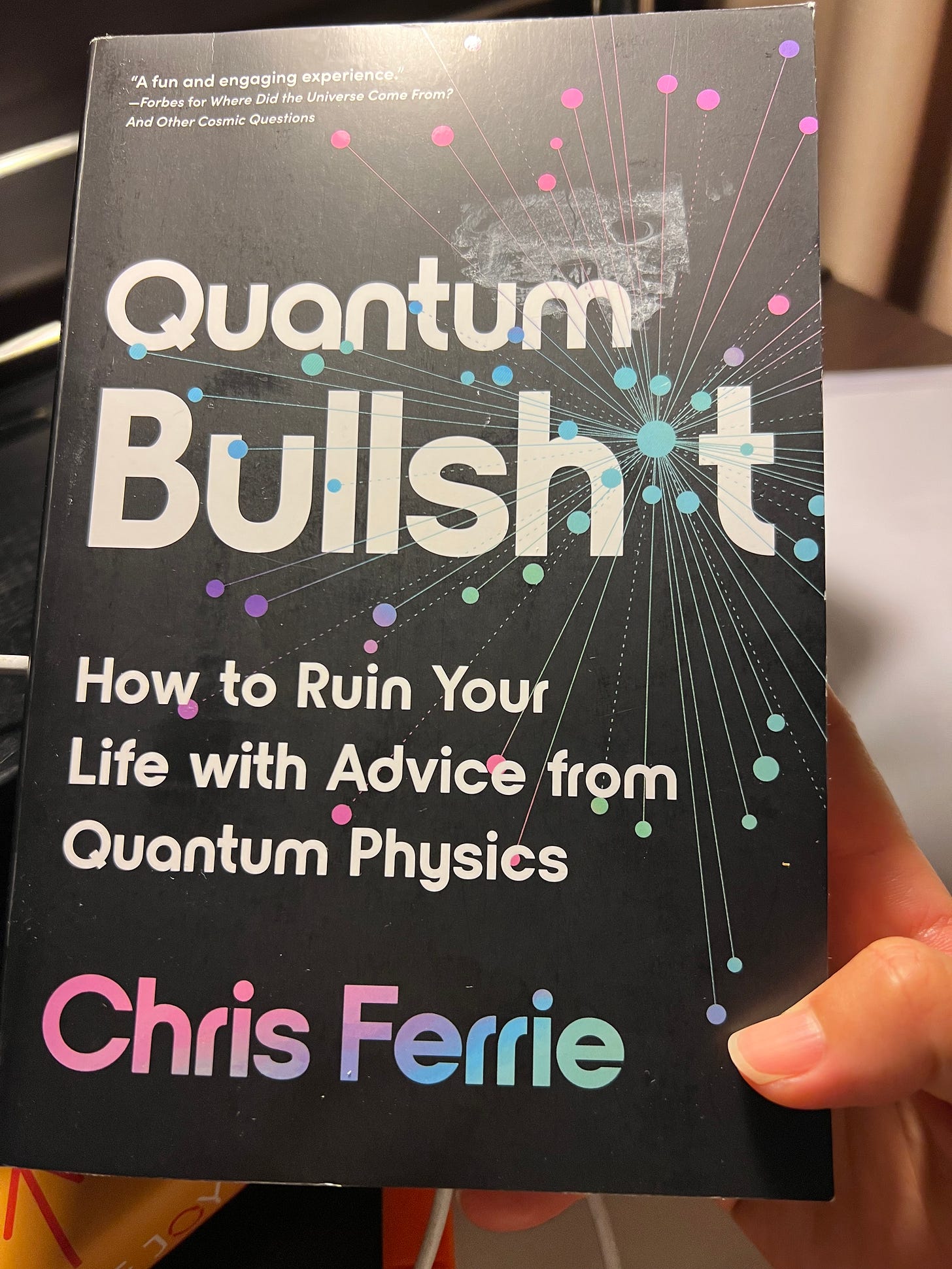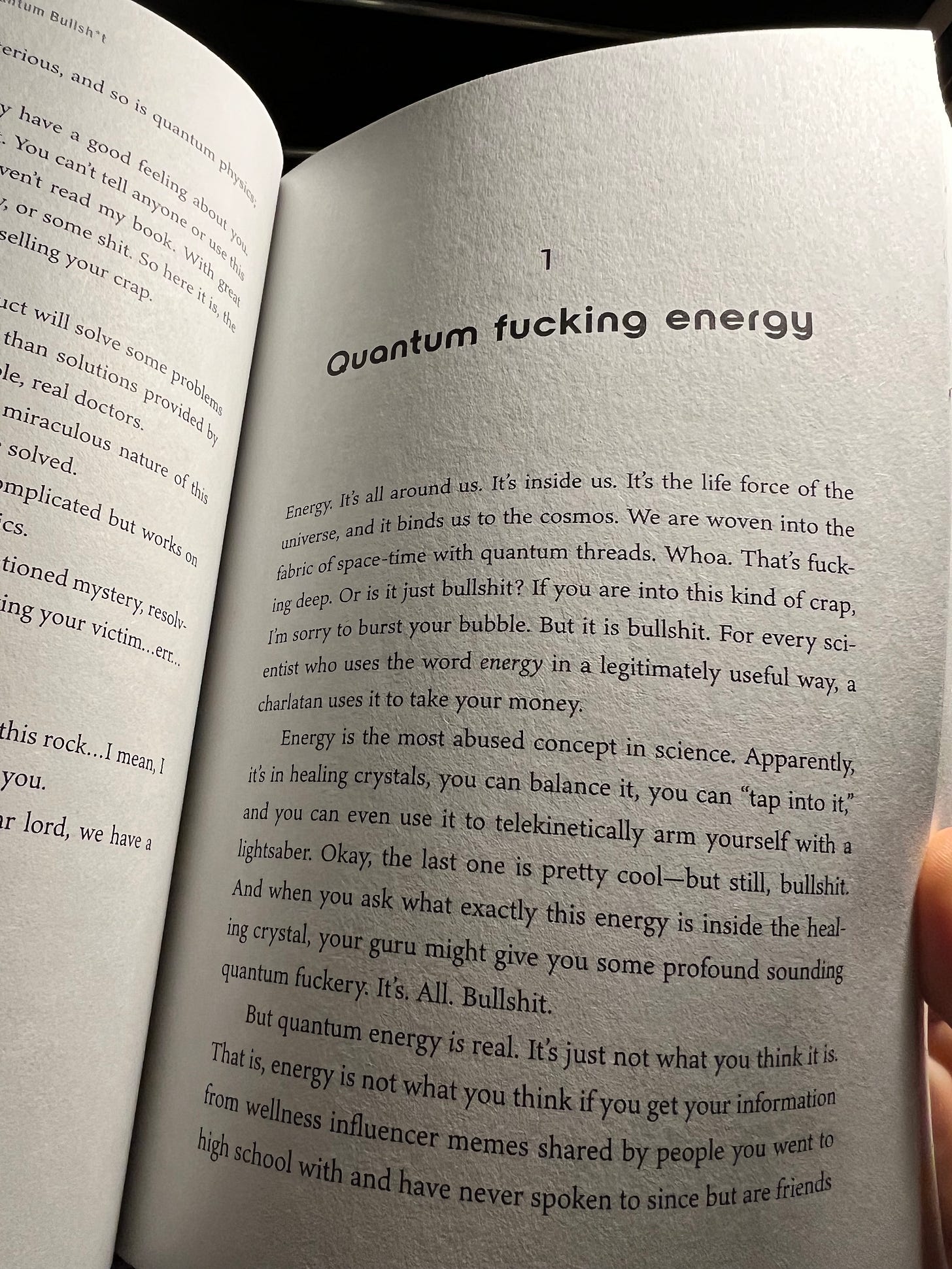The song that is my everything
About the asymptote that is authenticity
Hello intersectional thinkers 👋
Greetings from Vancouver! I’ve overhauled my life again.
A pattern is emerging. Every time I make a big life decision, I come back to Vancouver. More details on these changes in coming pieces. But in the meantime, here are a few photos to tease you.
Now onto today’s intersection:
"Are you making this up so you can sell more seats to your course?"
The one time I collected my courage to get vulnerable and told a story I haven’t shared with many, I was met with raised eyebrows and friendly but concerning feedback.
I laughed with a half and half of disbelief and defeat. Perhaps George Orwell was right. I’m not looking for love here. But can I just get a little bit of that understanding.
I’m so close on giving up making human connections 🙃 But then I remembered…
Chip Wilson's Rule of 3
I'm Canadian. And Lululemon is Canadian.
And the founder of Lululemon, Chip Wilson, a man who has said many questionable things, has this rule of 3 that led him to pick up the signal from the noise, and created the $50M yoga pants empire.
And the rule is:
"If I see something three times, I move on it quickly." - Chip Wilson
For him, it was yoga in 1998.
Chip saw an telephone pole ad about a yoga class. Then heard about yoga in a coffee shop. And saw yoga again in the newspapers.
The rest was history. Lululemon and the beginnings of atheleisure was born.
For me, the signal from the noise was this relentless human need for authenticity.
First I heard it from a new friend I made at Stanford (I'm working on that piece now! Details coming soon) - an Austrian banker and a deep thinker. He's matter of fact in the kindest way (reminds me a little of Baymax).
"Why are Americans are so eager to be friendly? But very quickly they put up a wall and you can never get to know the real them? Are Canadians similar?"
Are Canadians similar? Let me know in the comments.
The second time, I caught myself judging someone's authenticity. Specifically, this book I picked up at the airport called Quantum Bullsh*t.
I don't know why I picked it up. Maybe I was looking to be provoked.
And provoked I was.
The preface is titled What the f*ck is this book.
Chapter 1 is called Quantum f*cking energy.
Then two sentences in he says "That's f*ucking deep. Or is it just bullsh*t?" And the exclamations just continues for the rest of the chapter. And flipping through the book, it seems like we get a couple of sentence of regular words, then bam! Something else is f*cking bullsh*t.
There's so much f*ckery and bullsh*t that I couldn't help myself but question the author's authenticity.
Do you actually care about science, since "Science is so f*cking rad. We don't deserve it"? Or are you hiding behind all the bullsh*t?
And you know the third. Karma found me for judging Ferrie's book. My moment of vulnerability was shot down too.
Authenticity is like an asymptote
This is an asymptote. (Thanks Fei for mentioning the asymptote today!)
The asymptote is the straight lines that the curve approaches but never touches.
You probably drew these geometry class. But you probably didn’t know that you were drawing what was to become of your pursuit of authenticity.
The authenticity we seek, in others, and in ourselves is that asymptote that refuses to intersect with the curves of reality.
“The truth is rarely pure and never simple.”
― Oscar Wilde
We’re not yet ready to face authenticity. Because we have so many layers of us. Everyday, we put on the armours that the Japanese call honne and tatemae - Who we are and who we appear to be. They are both us. The combination of both makes us who we are.
This is the paradox of authenticity.
So like Chip, I'm going to move quickly after seeing this paradox thrice.
I sent that vulnerable story that sounded made up. Even if it sounded made up. Like Jay-Z said:
It’s my life
It’s my pain and my struggle
The song that I sing to you is my everything
Have a good week! (And let me know in the comments what you think of Canadians - are we also overly friendly on the outside, but icy Elsa snow queens on the inside?)
Vicky
PS Here's my Think in Frameworks course in case you are a knowledge worker into mental models and looking to think fast and make better decision. It’s my version of the song that is my everything. Enrollment closes soon!






I’ve been telling personal stories onstage for 30 years and every now and then someone asks if I made something up just to get laughs.
I don’t think they understand how much it hurts to finally work up the courage to be vulnerable and then be accused of lying. They don’t usually mean it that way but that’s how it feels.
I’m sorry that happened to you. I’ve found that most people are desperate for connection and really appreciate it when someone is brave enough to share a personal story. I hope you keep doing it.
Vicky! Great piece! So much food for thought here, as always. To me, there shouldn't really be a quest for authenticity. I mean, the minute you catch yourself striving for authenticity is when you're probably most far away from it. I think either you're authentic, or you're not. And if you're not, it's not necessarily bad. Some people spend their whole life trying to emulate someone else, trying to align their lives to some overarching principle that someone else designed. And that's ok, we're all a little like that, I think. It's like the asymptote you talk about: you can probably minimize the non-authentic part of you, but then again, when you're conscious that you're doing that, you drift away from authenticity even more. Is this the paradox? I don't know. But I kind of feel in synch with this too: "We’re not yet ready to face authenticity. Because we have so many layers of us. Everyday, we put on the armours that the Japanese call honne and tatemae - Who we are and who we appear to be. They are both us. The combination of both makes us who we are." So maybe authenticity is a theoretical state we can never achieve. On the other hand, "appearing to be" could either be something we do conscientiously, or something that others see in us (whether we're aware of it or not -- but in this case, its spontaneity makes me think that's too part of authenticity). It's really a conundrum! Thank you for writing this :)